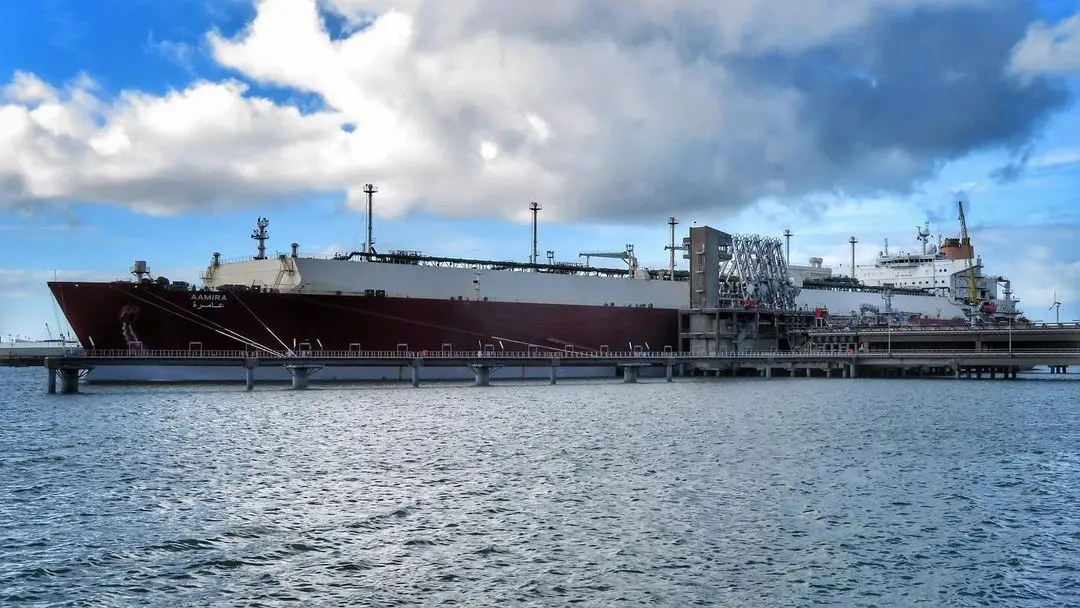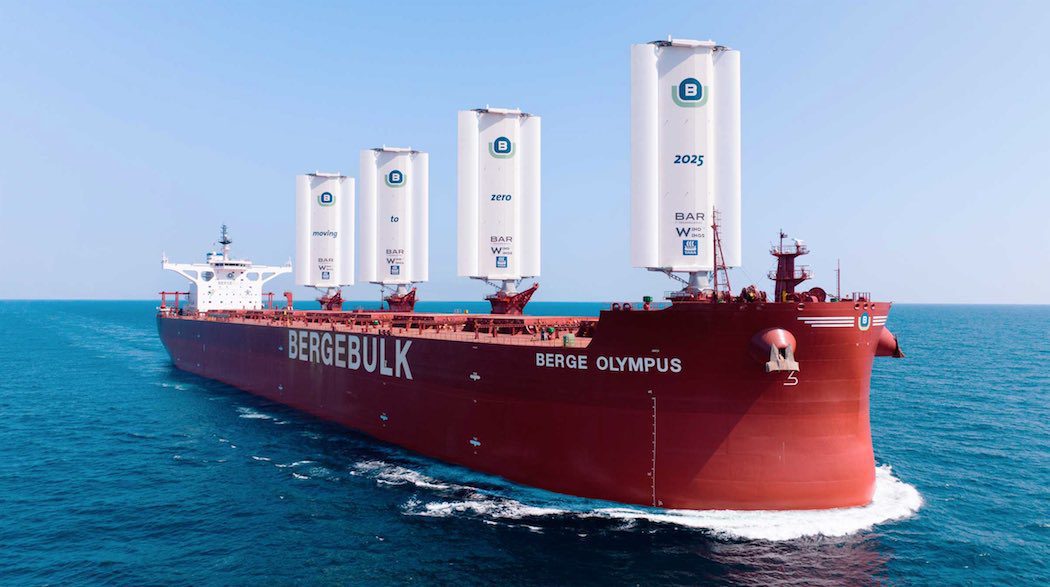Discover the top 10 shipping company stocks with high dividend yields, ideal for income-seeking investors in the maritime sector.
Each company’s strengths—whether in market reach, fleet type, or dividend stability—are highlighted to help readers make informed choices.
You’ll also find a clear methodology that evaluates yield, payout ratios, and market resilience, along with general investment advice on assessing dividend stability and managing risks in this dynamic industry.
10. Avance Gas Holding Ltd. (OSL: AGAS)
- Dividend Yield: Approximately 41.94%, making it one of the highest in the LPG shipping sector.
- Annual Dividend per Share: NOK 1.35, paid quarterly.
- Market Cap: Roughly NOK 7.2 billion, positioning it as a small-cap player in the industry.
- 1-Year Stock Price Range: The stock has shown significant volatility, driven by shifts in the LPG and energy markets.
- Key Markets/Regions Served: Specializes in liquefied petroleum gas (LPG) shipping, providing services globally, especially in Asia and the Americas.
Avance Gas’s exceptionally high dividend yield is appealing for high-risk, income-seeking investors. However, its elevated payout ratio, often near or exceeding 100%, signals potential challenges in sustaining these payouts if the LPG market faces downturns. The company’s reliance on spot rates and volatile LPG demand may lead to dividend reductions during market declines, though it offers compelling upside in strong markets.
9. 2020 Bulkers Ltd. (OSL: 2020)
- Dividend Yield: Approximately 6.75%, with monthly distributions appealing for steady income.
- Annual Dividend per Share: NOK 8.96, reflecting a strong commitment to shareholder returns.
- Market Cap: Roughly NOK 3.03 billion, making it a small-cap company.
- 1-Year Stock Price Range: Has increased by approximately 25%, showing favorable growth due to rising demand in dry bulk shipping.
- Key Markets/Regions Served: Focused on dry bulk commodities like coal and iron ore, with significant operations in Asia and the Atlantic.
2020 Bulkers stands out for its monthly dividend structure, providing regular income for investors. However, its high payout ratio raises questions about long-term dividend stability, especially during downturns in the dry bulk sector. The company’s earnings are closely tied to commodity demand, which could be an advantage in growth cycles but poses risks if market conditions weaken.
8. Scorpio Tankers Inc. (NYSE: STNG)
- Dividend Yield: Approximately 2.75%, offering modest income within the tanker sector.
- Annual Dividend per Share: $1.60, paid quarterly, supporting regular cash flow.
- Market Cap: Around $3.17 billion, classifying it as a mid-sized player in the shipping industry.
- 1-Year Stock Price Range: The stock has fluctuated between $52.68 and $84.67, showing volatility due to tanker rate changes.
- Key Markets/Regions Served: Specializes in transporting refined petroleum products globally, operating a modern fleet that caters to North America, Europe, and Asia.
Scorpio Tankers is a strong choice for investors seeking exposure to the refined petroleum product market. Its modest dividend yield reflects a cautious approach to payouts, making it potentially more sustainable in volatile markets. However, the company’s earnings and dividend stability are closely tied to global refinery output and demand for refined products; high demand boosts profitability, while a downturn could pressure dividends.
7. Genco Shipping & Trading Limited (NYSE: GNK)
- Dividend Yield: Approximately 8.69%, making it an attractive income option in the dry bulk sector.
- Annual Dividend per Share: $1.36, with quarterly payments providing consistent cash flow to shareholders.
- Market Cap: Around $678 million, marking it as a small-cap company.
- 1-Year Stock Price Range: Has experienced volatility due to fluctuations in the bulk shipping market, impacting investor sentiment.
- Key Markets/Regions Served: Primarily operates in global dry bulk shipping, transporting commodities like coal, iron ore, and grains across various international routes.
Genco Shipping & Trading offers a compelling dividend yield, appealing to income-focused investors within the small-cap segment. Its payout strategy is closely linked to its cash flow, making dividends potentially high during strong market periods but vulnerable during downturns. While the company benefits from a diversified commodity portfolio, it remains susceptible to bulk shipping rate cycles, making earnings and dividend payments cyclical.
- Dividend Yield: Approximately 5%, offering a balanced yield within the shipping sector.
- Annual Dividend per Share: $0.20, distributed quarterly, providing stable income potential.
- Market Cap: Around $600 million, positioning it within the small-cap category.
- 1-Year Stock Price Range: Displays moderate volatility, largely influenced by changes in the global demand for dry bulk, container, and tanker shipping.
- Key Markets/Regions Served: Operates a diversified fleet covering dry bulk, tankers, and containerships, providing a broad market exposure across North America, Asia, and Europe.
Navios Maritime Partners is ideal for investors seeking diversified exposure within the shipping sector. Its balanced fleet helps mitigate risks associated with single-market fluctuations, providing more predictable cash flows. However, the company’s lower yield compared to some peers may not appeal to high-yield seekers. Earnings and dividends remain sensitive to charter rates across its diversified fleet, and adverse shifts in any of these segments could impact overall payout stability.
5. Golden Ocean Group (NASDAQ: GOGL)
- Dividend Yield: Approximately 11.06%, positioning it among high-yield options in the dry bulk segment.
- Annual Dividend per Share: $1.20, with quarterly payments ensuring consistent returns.
- Market Cap: About $2.17 billion, classifying it as a mid-cap company.
- 1-Year Stock Price Range: The stock has fluctuated between $7.09 and $15.77, reflecting its sensitivity to dry bulk shipping rates.
- Key Markets/Regions Served: Operates the largest fleet of dry bulk vessels, primarily Capesize and Panamax classes, focused on transporting commodities like iron ore, coal, and grains.
Golden Ocean Group offers an appealing dividend yield for income-focused investors in the bulk shipping sector. However, the high payout ratio, which exceeds 100%, raises sustainability concerns if earnings decline. Forecasts suggest a more manageable payout next year, potentially stabilizing dividends if market conditions for dry bulk commodities remain favorable. The company’s earnings are closely tied to commodity shipping demand, which can lead to both lucrative payouts during market peaks and dividend cuts if rates drop significantly.
4. Costamare Inc. (NYSE: CMRE)
- Dividend Yield: Approximately 3.44%, offering a moderate yet reliable yield in the shipping sector.
- Annual Dividend per Share: $0.46, distributed quarterly, aligning with steady cash flow.
- Market Cap: Roughly $1.74 billion, making it a mid-cap company with a stable market position.
- 1-Year Stock Price Range: Fluctuated within a 52-week range of $8.54 to $17.58, reflecting market sensitivity to the container shipping sector.
- Key Markets/Regions Served: Operates a diversified fleet with both container ships and dry bulk carriers, serving global trade routes across major economic regions.
Costamare is well-regarded for its diversified fleet, balancing container and dry bulk sectors to mitigate market-specific risks. Its moderate dividend yield offers a stable income source, appealing to long-term investors who value predictability over high yield. The company benefits from long-term charters in its container segment, supporting dividend stability, though exposure to spot rates in bulk shipping may introduce some volatility. Costamare’s strategy of diversified assets makes it resilient against market shifts, though substantial changes in either sector could still impact earnings and dividends.
- Dividend Yield: Approximately 8-10%, providing a solid yield in the crude oil transportation industry.
- Annual Dividend per Share: The dividend varies with earnings, typically offering attractive yields during strong market conditions.
- Market Cap: Around $2.5 billion, positioning it as a mid-cap company with stable market visibility.
- 1-Year Stock Price Range: The stock price has experienced ups and downs tied to changes in crude oil shipping demand.
- Key Markets/Regions Served: Euronav is a leader in crude oil transport, specializing in Very Large Crude Carriers (VLCCs) and Suezmax tankers, with global operations primarily focused on North America, Asia, and Europe.
Euronav’s dividend yield makes it a standout in the tanker sector, appealing to income-focused investors. The company’s earnings and dividend payouts are closely tied to crude oil demand and global tanker rates, which can lead to strong dividends during market peaks and potential reductions when demand falls. The moderate payout ratio and large, modern fleet offer some resilience, yet Euronav’s earnings remain sensitive to the oil market’s cyclical nature, impacting the consistency of its high dividends.
2. DHT Holdings, Inc. (NYSE: DHT)
- Dividend Yield: Approximately 10.07%, offering a high yield in the tanker market.
- Annual Dividend per Share: Around $1.08, with quarterly payments that align with strong cash flow management.
- Market Cap: Roughly $1.6 billion, classifying it as a mid-cap entity in the energy shipping sector.
- 1-Year Stock Price Range: Has fluctuated between $9.28 and $12.80, reflecting its exposure to oil market volatility.
- Key Markets/Regions Served: DHT specializes in Very Large Crude Carriers (VLCCs) for transporting crude oil globally, focusing on major trade routes across North America, Asia, and Europe.
DHT Holdings is a compelling choice for investors seeking high dividends within the crude oil shipping sector. The company’s focus on VLCCs provides it with an edge in economies of scale, and its dividends are supported by a robust payout ratio, albeit one that can fluctuate with crude spot rates. While the high yield appeals to income investors, dividends may be sensitive to downturns in oil demand, which could impact VLCC charter rates. Despite these risks, DHT’s consistent payout strategy offers a stable income source when oil market fundamentals are strong.
1. Frontline Ltd. (NYSE: FRO)
- Dividend Yield: Approximately 12.55%, making it a high-yield choice in the oil tanker sector.
- Annual Dividend per Share: Around $2.48, with quarterly distributions reflecting a focus on shareholder returns.
- Market Cap: About $4.5 billion, establishing it as a large player in crude oil transportation.
- 1-Year Stock Price Range: The stock has shown significant volatility, tied to fluctuations in the global oil transport market.
- Key Markets/Regions Served: Frontline operates globally, specializing in VLCC, Suezmax, and Aframax-size oil tankers to transport crude oil across major trade routes.
Frontline is highly regarded for its dividend yield, making it an attractive option for investors focused on high income-within the energy shipping industry. The company’s payout ratio, however, is elevated, indicating potential sustainability concerns if spot rates drop or oil demand declines. Frontline’s earnings are highly sensitive to tanker rates, which can lead to generous dividends during market booms but create risk for dividend reductions during periods of low oil demand. Despite these risks, Frontline’s market position and large-scale fleet provide a strong foundation for capturing value when tanker rates are favorable.
Methodology for Evaluating Dividend-Paying Shipping Stocks
The methodology for evaluating high-yield shipping stocks, as applied to the top 10 companies listed, considers key financial and operational metrics to balance income potential with sustainability. Here’s how investors can use this approach to make informed decisions:
- Dividend Yield:
- Purpose: Measures the return from dividends relative to stock price. A high yield (generally above 5%) appeals to income-seeking investors but may signal risk if excessively high.
- Example: Avance Gas has an exceptional 41.94% yield, but investors should evaluate if this level is sustainable over time given market conditions.
- Dividend Payout Ratio:
- Purpose: Indicates the percentage of earnings paid out as dividends. A payout ratio under 80% is typically more sustainable, while over 100% could signal potential reductions during low-earnings periods.
- Example: Frontline’s payout is high, offering strong returns, but this level might fluctuate if oil demand declines.
- Market Cap and Stock Price Stability:
- Purpose: Market cap (company size) and price range reflect company stability and sensitivity to market changes.
- Example: Mid- to large-cap companies like Euronav offer more stability compared to smaller-cap peers, making their dividends potentially more reliable.
- Business Focus and Fleet Type:
- Purpose: Differentiating companies by fleet type (e.g., dry bulk, crude oil, LPG) and market segment allows investors to align their risk tolerance with the operational focus.
- Example: DHT Holdings, with its VLCC fleet, is more exposed to crude oil market cycles, while Navios offers diversified exposure across tanker, dry bulk, and container markets, reducing risk in any single segment.
- Dividend Consistency and Growth:
- Purpose: Regular dividend payments with growth potential signal a company’s commitment to shareholder returns. This can indicate management’s focus on stable earnings and cash flow management.
- Example: Companies like Costamare, with a diversified fleet and steady dividend history, appeal to investors seeking more predictable income.
General Advisory for Investors Evaluating Shipping Stocks
- Balance Yield with Sustainability: High yields are attractive but may come with increased volatility or sustainability risks, especially in cyclical industries like shipping. Consider yield in context with the company’s payout ratio and market stability.
- Analyze Fleet and Market Exposure: Choose companies that align with your risk tolerance. Tanker-focused companies like Frontline benefit in oil price surges but may face downturns in low-demand periods. In contrast, diversified fleets like those of Navios provide a hedge against market swings in any single segment.
- Consider Macroeconomic Factors: Shipping rates, oil demand, and global trade policies impact the sector significantly. Understanding these can help investors anticipate changes in dividend stability.
- Evaluate Growth and Consistency: Companies with stable or growing dividends over time generally offer more predictable returns. Reviewing dividend history can reveal if a company can sustain payouts even during weaker markets.
- Types of Gas Carriers as per IGC Code – April 22, 2025
- Wind-Assisted Propulsion Systems (WAPS): A Game Changer for Maritime Decarbonization – February 6, 2025
- 10 Boat Salvage Yards in California – January 25, 2025



